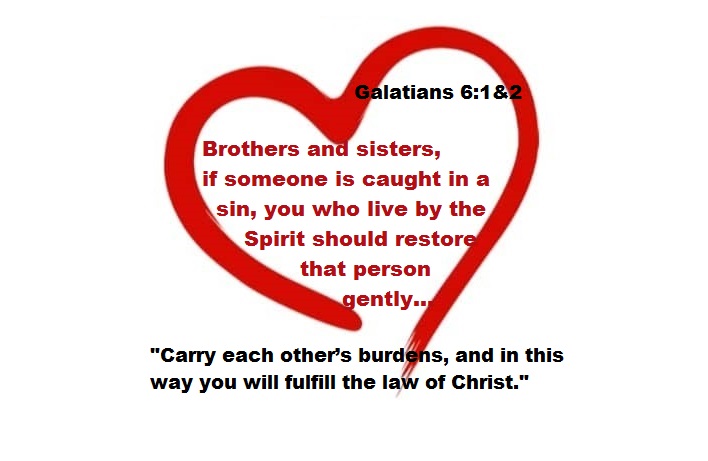THE SHEEP, THE COIN, AND THE SON…

Views: 85
Then Jesus told them this parable:
“Suppose one of you has a hundred sheep and loses one of them. Doesn’t he leave the ninety-nine in the open country and go after the lost sheep until he finds it? And when he finds it, he joyfully puts it on his shoulders and goes home. Then he calls his friends and neighbors together and says, ‘Rejoice with me; I have found my lost sheep.’ I tell you that in the same way there will be more rejoicing in heaven over one sinner who repents than over ninety-nine righteous persons who do not need to repent. “Or suppose a woman has ten silver coins and loses one. Doesn’t she light a lamp, sweep the house and search carefully until she finds it? And when she finds it, she calls her friends and neighbors together and says, ‘Rejoice with me; I have found my lost coin.’ In the same way, I tell you, there is rejoicing in the presence of the angels of God over one sinner who repents……Jesus continued: “There was a man who had two sons. The younger one said to his father, ‘Father, give me my share of the estate.’ So he divided his property between them. “Not long after that, the younger son got together all he had, set off for a distant country and there squandered his wealth in wild living. After he had spent everything, there was a severe famine in that whole country, and he began to be in need……But the father said to his servants, ‘Quick! Bring the best robe and put it on him. Put a ring on his finger and sandals on his feet. Bring the fattened calf and kill it. Let’s have a feast and celebrate. For this son of mine was dead and is alive again; he was lost and is found.’ So they began to celebrate.” [Luke 15:3-10, 11-14, 22-24]
Luke 32 was entirely dedicated to three important parables to illustrate God’s care for all who are His own. Three things are noteworthy here:
- The sheep, coin and son all once belonged. Then they were lost.
- When lost, they were vehemently searched for.
- There was rejoicing when they were finally found.
Jesus gave these parables when he was accused by the Pharisees and the teachers of the law that he welcomed sinners and ate with them (v.2).
The question is: Who are the lost being referenced here?
While most people will immediately point to those who say they do not believe in God, or those who practice other religious faiths, I want to point to another group of the lost that we are missing: Those who belonged to our churches, fellowships, and believers’ groups but fell away. Some got involved in sexual sin – like getting pregnant out of wedlock (considered a more serious sin in the African context than hatred, bitterness and lack of forgiveness). They were vilified, criticized and shamed; and left with deep wounds and bruises, never to join again. Others also got offended, felt unappreciated, got embittered, felt insulted, got despised and many more; and fell away.
Like the lost son, these have good memories of when they were in their Father’s house; when they belonged to the body of believers. They are the ones that will say:
“How many of my father’s hired servants have food to spare, and here I am starving to death!”(v.17)
These are the ones I call the “low hanging fruits of evangelism”. Unfortunately, most are unwilling to go after them because either they are simply forgotten, or we might have to swallow our pride and apologize for the way we handled the situation they found themsleves in.
Believers are not there to condone sin, but it is not their duty to also send ‘sinners’ away. If we should go by what Bible says to the letter, then the believer is supposed to correct gently, with the aim to restore in love. Galatians 6:1-2 is instructive. It says:
“Brothers and sisters, if someone is caught in a sin, you who live by the Spirit should restore that person gently…Carry each other’s burdens, and in this way you will fulfill the law of Christ.”
Those who fall behind in the race of faith are as important as those who are alienated due to the Adamic sin.
Luke 15 is one of those situations where the conclusion of the story is in the middle, and in this case in verse 7, which says:
“I tell you that in the same way there will be more rejoicing in heaven over one sinner who repents than over ninety-nine righteous persons who do not need to repent.”
Without ignoring the new, it pleases God if we actively and lovingly help the old to remain, whatever their shortcomings; and also help those who have fallen behind to come along. To help guide us in dealing withone another, we need to remember Jesus’ words in Luke 6:37 which says:
“Do not judge, and you will not be judged. Do not condemn, and you will not be condemned. Forgive, and you will be forgiven.“
In the final analysis, God is ultimate judge.
PRAYER
Father, please help me not to offend any of my brothers and sisters that were purchased with the precious blood of your Son; and when I do, may I be humble enough to admit my wrong and apologize. Please help me to also help those who have fallen off back into Your fold, in Jesus’ name.
MEMORY VERSE
“I tell you that in the same way there will be more rejoicing in heaven over one sinner who repents than over ninety-nine righteous persons who do not need to repent.” [Luke 15:7]
*EXCITING NEWS!*
Your favourite website (Testimony Devotional) is back online, and with all content intact too! You can read this and other uplifting articles on the *Testimony Devotional Website* at: www.testimonydevotional.org or www.mytd.org.
GRATITUDE
We are profoundly grateful for your calls, prayers, voluntary offers of material and skills support, and all the numerous words of encouragement we received. Please note that we have added some layers of security to the website prevent further incidents, especially when interacting with the site. Please bear with us, as we work to improve your site. God bless you richly, and continue to pray without ceasing; and please say one for us too.

